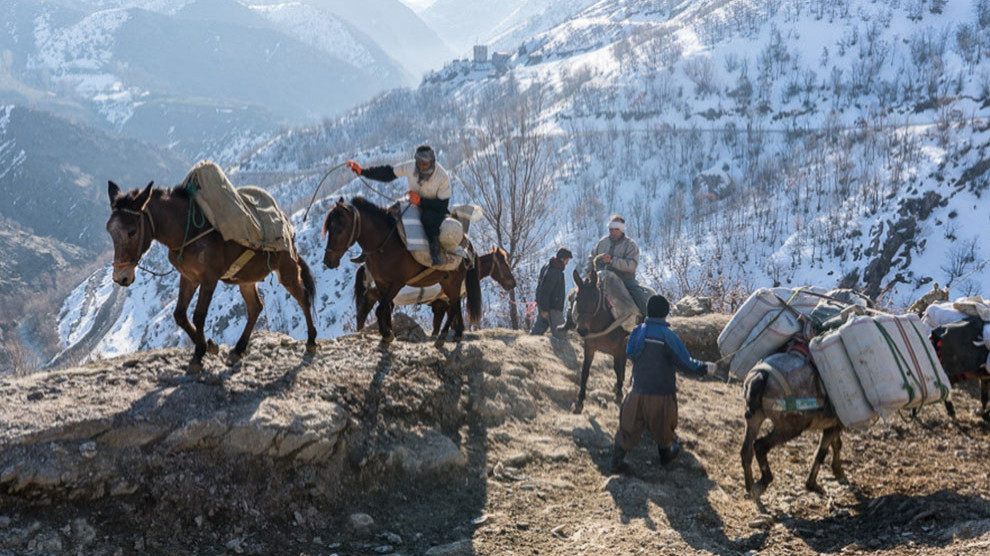Iranian and Turkish forces killed at least 7 kolbars in a month
At least 7 kolbars were killed and 11 others wounded by Iranian and Turkish forces in the border region in the last one month.
At least 7 kolbars were killed and 11 others wounded by Iranian and Turkish forces in the border region in the last one month.

According to Kurdistan Human Rights Network, at least 7 kolbars (load carriers for daily wage) lost their life as a result of attacks by Turkish and Iranian soldiers between 23 August and 23 September.
The slain kolbars were identified as Zanko Ehmedî, Zanist Hesen Nijad, Soran Mekarî, Celal Xizrî, Şehran Mihemedî, Selahedîn Osmanzade and Hesen Hendpur.
The Kurdistan Human Rights Network stated that the kolbars were directly targeted in the attacks which also left 11 other kolbars wounded.
According to the network, the body of kolbar Şeram Mihemedi has not been handed over to his family. Turkish officials are reportedly asking for money to deliver his body.
The network also informed that four kobars died in accidents during the same period of time.
The tragedy of the kolbars
Eastern Kurdistan has descended deeper into poverty through the years due to deliberate policies by the Iranian regime and stands out as one of the poorest regions in Iran. Compared to other regions, the area has seen significantly less investment and development has been deliberately curbed. Agriculture and industry weren’t allowed to develop, and as a result unemployment rose to highest in Iran.
Faced with policies of discrimination, oppression and impoverishment, carrying smuggled goods is not a choice but a must for survival.
Kolbar comes from the Kurdish words, “kol” (back) and “bar” (load). Kolbars make their living carrying loads along the perilous border line. Their loads include cigarettes, mobile phones, cloths, housewares, tea and seldomly alcohol. They walk through dangerous terrain to continue this trade between Southern and Eastern Kurdistan. The goods they bring are sold at high prices in Tehran, but the kolbars who risk their lives for them are paid very modestly.
The intermediaries who take the deliveries and find buyers in cities are called kasibkars.
Kolbars and kasibkars range from 13 to 70 years old. Some only finished elementary school, while others are university graduates. They carry loads, because they can’t find any other employment. In the last 5 years, some at least 300 kolbars and kasibkars were killed in cold blood. There are no absolute statistics available for the deaths.
RELATED NEWS: